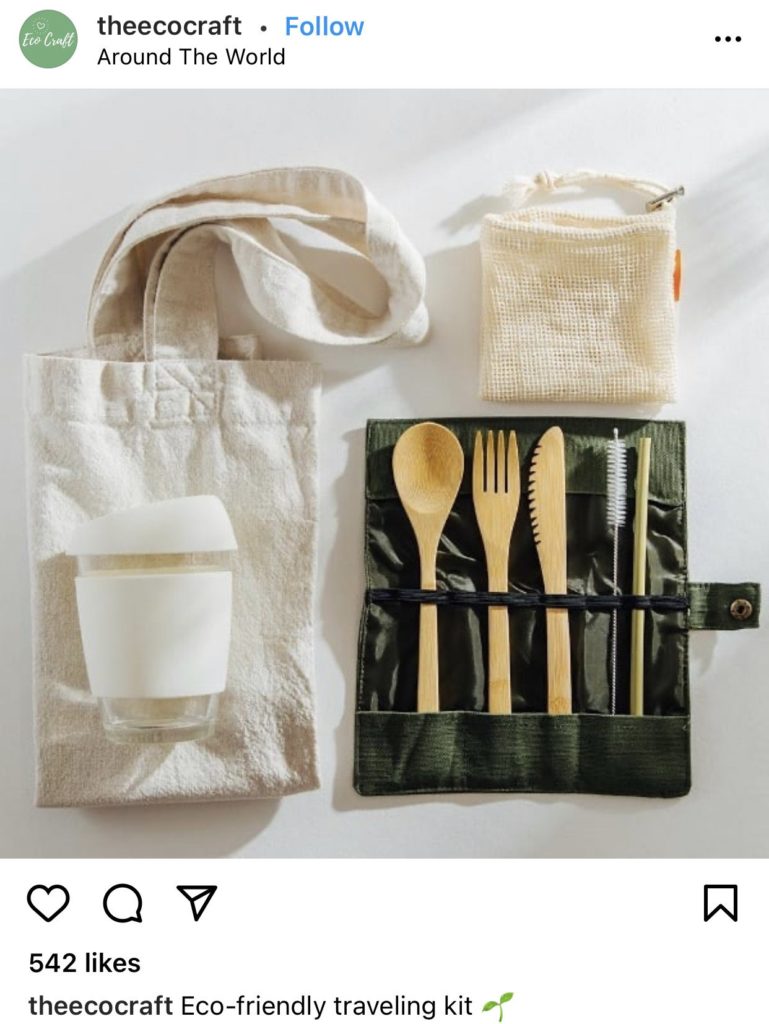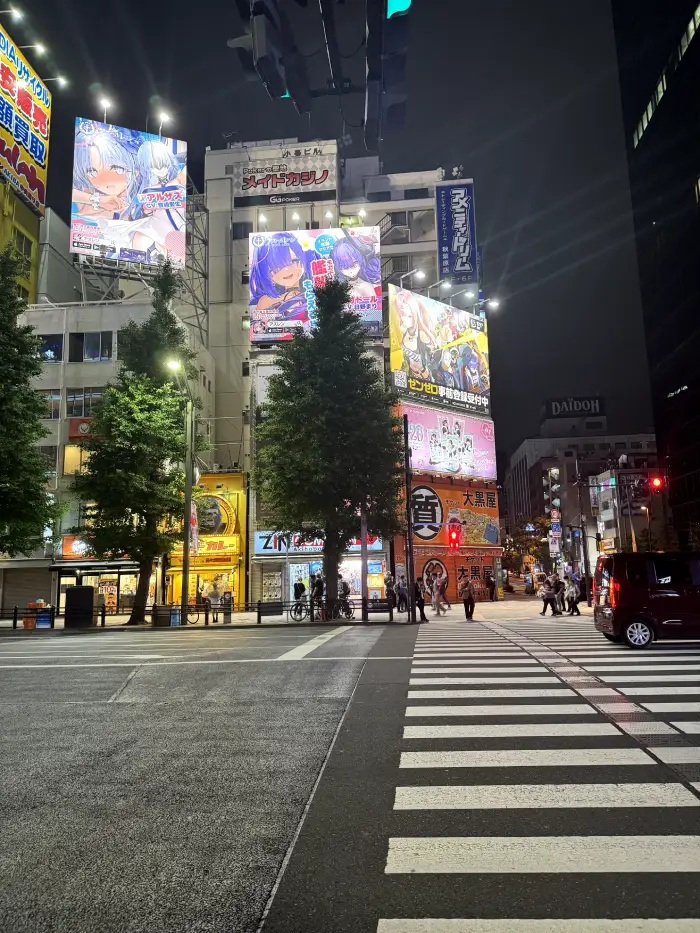All of us love to travel around the world, and why not? It helps us relax from all the stresses of our daily lives, allows us to travel the world, learn a lot more about the diversity of humans on this planet, and fulfil our dream of solo travelling. But knowingly or unknowingly, we are polluting the earth by travelling. Yes, that’s true. But this doesn’t mean that we should stop travelling. Instead, we should try to become eco-friendly travellers and change our choices to more sustainable ones.
Environment-friendly travel is a buzzword in the travel industry. This is something that should have come into the limelight years ago, better late than never! Carbon emissions are rising every year due to various reasons, which results in global warming. It also results in loss of biodiversity, which means that you won’t be able to visit national parks and zoos and look at exotic animals in the near future.
I have compiled a list of things that we all can do to preserve this planet and become eco-friendly travellers. Some things might be harder to follow than others, but all of these help you and the environment in the long run. Try to follow as many as you can and become a responsible solo traveller. Read on.
1. Pack a little less stuff
You would be surprised to know how the weight of your luggage harms the environment. The more the weight of your luggage, the more will be the fuel used, which leads to more significant carbon emissions. I don’t mean to say that you should leave out the essential things. Instead, you should carry only those things that you will be using on your trip.
For example, plan your outfits and carry only those pieces of clothing instead of packing everything you like and picking your outfits on the trip. Not only will your luggage be lighter and easier to carry around, but you will also save money by not checking in the luggage.
2. Carry your own toiletries
Most hotels provide toiletries during the stay. I know it is convenient, but it also majorly contributes to environmental degradation. Your half-used or unused shampoos have to be thrown away as they cannot be used by another traveller on their trip. All of us have toiletries at home. Why not carry them in reusable bottles? Yes, you can choose high-quality plastic here as it would last a long time and offset the carbon dioxide emissions by a lot.
If a hotel charges you extra for toiletries, you can also save that money by carrying your own. Additionally, you don’t have to rely on their choices of products. You can bring your favourite shampoo, conditioner, moisturisers, and whatnot. This way, you can take much greater care of your body as well.
You should also carry a menstrual cup or try it out as it is very convenient. Not only will you be saving some space in your luggage, but also the environment. Along with that, make sure that you do not miss out on these things if you are travelling solo for the first time.
3. Carry a cloth/reusable bag
No matter where you travel to, you will be shopping quite a lot. Be it souvenirs, clothing items, groceries, or everyday items. When you are done buying everything, the seller will give you a plastic bag to carry your items, which you will end up throwing away once you reach your accommodation. And the dangers of single-use plastic aren’t unknown to us.
Instead of relying on these plastic bags, you can carry a cloth/reusable bag on every trip. Not only is the carry bag more comfortable, but it is easier to carry the load for long distances. It also discourages the seller from providing plastic bags to their buyers.
4. Reduce your energy use
Yes, it can be done on solo trips too! Before stepping out of your hotel, make sure that you turn off all the lights, fans, and television. Also, you can ask the hotel staff not to vacuum your room if you think it is not required. I know that you won’t be paying for the electricity bill, but make an effort to save as much energy as you can.
The power plants used to generate electricity emit a considerable amount of harmful gases into the atmosphere as a by-product. By reducing energy use, which isn’t as complex as it seems to be, all of us can do our bit to save the environment.
5. Choose public transport over private cabs

We love exploring hills and other beautiful places. But what if the air quality isn’t any good? There’s no use, right? Believe it or not, this is due to an increased number of tourist vehicles around these areas. Whenever possible, try and choose public transport instead of taking a cab everywhere. It will save the environment much more than you think.
If you choose to take a private cab, select a smaller model of the car. Not only will it save you some money, but it will also help the environment immensely. However, if it is possible to walk to a destination, you should definitely do that!
6. Do not litter anywhere
This is the first thing that our teachers and parents taught us in kindergarten. However, some of us knowingly or unknowingly litter places even though we have become fully grown adults. Understand that littering is an illegal act in many countries and can lead to unnecessary problems on your trip. Along with that, it also makes a mess of the environment and degrades the beauty of places.
Try not to litter and follow the rules of the country that you are in. If you need to throw some waste, find a dustbin nearby or keep the junk in your bag until you find a bin. Simple things like these do good to the environment in more ways than you think.
7. Avoid wasting food
Whenever we go on a trip, we want to try the best food that the place has to offer. But more often than not, we order much more food than we can eat. What happens next? Due to limited space in our stomachs, we end up wasting food. The only solution is to order as much food as you can finish and then order a little more if you think you need it.
Food wastage harms the environment, and sadly, there are some people who need it but can’t have it. And it is a fact that a tonne of food is wasted every year due to tourism. Make a conscious effort from now on to not waste food at all. You can also save a lot of money in the long run, so that’s a win-win situation.
8. Try to save water
We are all aware of the water shortage on the planet. You will be surprised to know that there is enough water for everyone’s needs. However, the primary reason for water shortage is over-use and wastage. And the good news is that saving water while travelling is much easier than you think.
Try to take baths instead of showers. If you take a shower, try to keep the duration shorter and turn off the shower while you shampoo, shave, lather or brush your teeth. Additionally, try to wash your own clothes instead of giving them to the hotel laundry as it saves a lot more water than you think.
9. Carry your own water bottle
Whenever we are travelling, we purchase multiple disposable water bottles in a day. Just try and comprehend how much plastic you would have used and wasted just by purchasing disposable water bottles on all your trips combined! That would be a lot for one human being. Instead of buying water bottles, carry your own, and you will end up saving multiple kilograms of plastic waste every year.
Carrying your own water bottle has multiple benefits. You can choose from many variants like a thermos flask, squeeze bottle, air-tight bottle, large bottles, small bottles, or whatever you wish to buy. You wouldn’t have this choice while buying a disposable water bottle. That’s reason enough to ditch the disposable water bottles forever!
10. Don’t take flights
Don’t get me wrong. I don’t mean to say that you shouldn’t take flights at all. How would you be able to explore such unique places across the globe otherwise? What I mean to say is try to avoid taking a flight for shorter distances. I know that it is very convenient for you, but it is not good for the environment. Instead, try and travel by train or car for shorter distances as it saves fuel significantly.
Also, avoid taking stopover flights. It would save you some money but try spending a few extra dollars and take one flight instead. You will also save time by not switching flights, which is a lot more convenient too.
11. Try carpooling

Carpooling is a great way to get to places if you don’t like public transport. It is a concept where you share a car with other people who want to get to areas that fall on the same route as yours. It might sound like a complicated concept, but you can book a carpool in seconds with the advancement of technology.
Make sure that you do not book a carpool from an unknown source. To be safe, only book one from a recognised website/application on your phone. While you might not save as much fuel if you travel using public transport, you can have the comfort of travelling in a cab and also make some new friends, who knows?
12. Try to take things slow
Whenever we go on solo trips, we wish to explore all the sites that a place has to offer. If not all, as many as we can cram into our itinerary. What we fail to realise is our increased carbon footprint due to moving a lot. Instead, travelling to lesser places and deeply exploring them should be your goal.
Not only is this good for the environment, but it also doesn’t burn a hole in your wallet. Taking fewer trips helps the environment in many more ways than you can ever imagine. You can also meet the local communities, get to know them better and spend some time with them. And if you have never been on a solo trip ever before, these tips might help you a lot!
13. Hostels over hotels
Hotels provide all the luxuries that you can ever imagine. Be it a massive room, a swimming pool, massage centres, and whatnot. Not only do these luxuries come at a heavy price, but they also do a lot of harm to the environment. The amount of energy used per person in a hotel is much more than that used in other types of accommodations, for example, in a hostel.
The benefits of opting for a hostel as compared to a hotel are plenty. Not only do you have to pay lesser, but you can also mingle and make friends with a lot of people. You can share your experiences and get to know theirs, which will help you on your trip. Needless to say, the amount of energy used per person is only a fraction of that used in a hotel.
14. Eat like a local
Ask yourself a question. Would you like to explore the cuisines of the locals on your trip or eat your favourite food that you eat back in your home country? I assume your answer is the former. Exploring the local cuisines has various benefits. Firstly, you get to try out something new and unique. Secondly, because these items are usually grown in the home country, they are fresh and have a much lesser carbon footprint.

You should try and stick to foods that are grown locally and avoid packaged and processed food. Having your favourites once in a while is okay. But otherwise, you should try out new local dishes. It also helps the local economy. I mean, you didn’t come to Bali to eat a burger you could eat back in your home country, right?
15. Don’t do touristy things with wild animals
In various places around the world, you can pose with lions and tigers to click a picture or get an elephant ride. Have you ever thought about how this is possible? A lion or tiger wouldn’t let you take a photo with them otherwise, and an elephant won’t let you ride itself as they are “wild” animals. The reason it is possible is that these animals are often tranquillized.
Society considers things like these to be ‘cool.’ But you should avoid all such practices altogether. How can this help, you ask? If there aren’t enough customers who take up such rides and photos, people will stop tranquillizing these animals as it wouldn’t be profitable to do so. Suppose you really want to watch wild animals. In that case, I suggest that you visit one of the national parks or sanctuaries in the country you are visiting.
16. Buy good quality items
It is tempting to buy cheap items even though we know that their quality isn’t as good. For example, clothing shops usually have the latest trends at a very low price which attracts all of us. This price tag might not be heavy on your wallet, but it indeed is on the environment. After a few uses, these items end up in the dustbin, we purchase new ones, and the cycle repeats itself.
Instead of going over this cycle repeatedly, you should try and invest in good-quality items. These items will last much longer than the cheap ones. Thus, there will be lesser garbage, and you will save money in the long run by not buying cheap items repeatedly. Also, you can support sellers that provide good quality items.
17. Dine-in instead of take-away
This is something all of us do. Because as we are travelling solo, we feel that it is better to eat at our hotels than to eat alone at the restaurant. I mean, who doesn’t like watching YouTube while they enjoy a delicious meal? And restaurants also provide disposable containers, so you don’t have to wash anything other than your hands after your meal. That’s so convenient!
While all of that is great, these containers, which are usually made of plastic, end up in landfills as they cannot be recycled. Instead, you can choose to dine in and enjoy your meal to the fullest at the restaurant. And who knows, you might bump into other travellers and have a pleasant conversation over food!
18. Use eco-friendly products
Shampoos, conditioners, facial products, and other personal care products are filled with harmful substances like preservatives. How are preservatives bad for the environment, you ask? These substances increase the shelf life of the product a lot. They are not only bad for the environment as they are non-biodegradable but also bad for your skin.
Due to increased awareness, people are switching to natural and eco-friendly products. There are great natural products available for every need, from a sulphate-free shampoo to a preservative-free face wash. All you need to do is a little bit of research, and you can save the environment and yourself from all these harmful substances.
19. Save paper
Sounds simple, isn’t it? Yes, it is as simple as it sounds. You can save a lot of paper while travelling solo too. We all know that millions of trees are cut every day to produce paper which leads to soil erosion, floods, and deforestation. But even then, paper is widely used for documentation purposes.
As a solo traveller, you can carry a soft copy of your ticket and other documents required while travelling. If you love reading books, you should invest in an Amazon Kindle instead of buying innumerable paperbacks. This way, you can save the environment and also have all your books in your palm. You can read them whenever you want without worrying about actually carrying the physical copy of the book.
20. Reduce meat consumption
Believe or not, the meat industry is one of the world’s biggest polluter. According to some experts, a meal consisting of a hundred grams of meat results in around seven kilograms of carbon emissions. If you are someone who opts for meat every meal, consider cutting down on it. Instead, switch it up with some vegetables as it would help with digestion too.
This should not restrict you from exploring all the local cuisines. You can plan when to eat meat and when to not. Obviously, you shouldn’t limit this to your trips only. You can practice the same when you reach back home too. Just remember that you can save hundreds of kilograms of carbon emissions every year just by limiting your meat consumption.
Are you doing your bit to save the environment?

Those were some things that you can do on your solo trip to save the environment. Not only that, but you can also make these changes a part of your life and practice them when you get back home. You will be surprised to know how little things like these have a significant impact in the long run. This way, you can have a guilt-free, sustainable and healthy travelling experience. And when you meet travellers who question your choices, you can explain to them why, and who knows, they might be inspired to change their choices too!









Leave a Reply